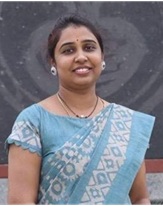CSE – DS
>CSE – Data Science
Latest course in emerging area is being offered from the Academic Year 2020-21 with an intake of 60.
Career
The CSE-Allied Department effectively prepares students to pursue leadership, technical, and management qualities to compete for various positions in different industries.
PEOs
PEO 1 : Graduates will be able to comprehend mathematics, science, engineering fundamentals; laboratory and work-based experience to formulate and solve problems in Computer Science and Engineering and other related domains and will develop proficiency in computer-based engineering and the use of computation tools.
PEO 2: Graduates will be prepared to communicate and work effectively on the multi disciplinary engineering projects practicing the ethics of their profession with a sense of social responsibility.
PEO 3: Graduates will recognize the importance of lifelong learning to become experts either as entrepreneurs or employees and to widen their knowledge in their domain.
PSOs
PSO 1: Ability to adapt to a rapidly changing environment by learning and employing new programming skills and technologies.
PSO 2: Ability to use diverse knowledge across the domains with inter personnel skills to deliver the industry needs.
POs
PO1 : Engineering knowledge – Engineering knowledge: Apply the knowledge of mathematics, science, engineering fundamentals, and an engineering specialization to the solution of complex engineering problems.
PO2: Problem analysis – Identify, formulate, review research literature, and analyze complex engineering problems reaching substantiated conclusions using first principles of mathematics, natural sciences, and engineering sciences.
PO 3: Design/ development of solutions – Design solutions for complex engineering problems and design system components or processes that meet the specified needs with appropriate consideration for the public health and safety, and the cultural, societal, and environmental considerations.
PO 4: Conduct investigations of complex problems – Use research-based knowledge and research methods including design of experiments, analysis and interpretation of data, and synthesis of the information to provide valid conclusions.
PO 5 : Modern tool usage – Modern tool usage: Create, select, and apply appropriate techniques, resources, and modern engineering and IT tools including prediction and modeling to complex engineering activities with an understanding of the limitations.
PO 6 : The engineer and society – Apply reasoning informed by the contextual knowledge to assess societal, health, safety, legal and cultural issues and the consequent responsibilities relevant to the professional engineering practice.
PO 7 : Environment and sustainability – Understand the impact of the professional engineering solutions in societal and environmental contexts, and demonstrate the knowledge of, and need for sustainable development.
PO 8 : Ethics – Apply ethical principles and commit to professional ethics and responsibilities and norms of the engineering practice.
PO 9 : Individual and team work – Individual and team work: Function effectively as an individual, and as a member or leader in diverse teams, and in multidisciplinary settings.
PO 10 : Communication – Communicate effectively on complex engineering activities with the engineering community and with society at large, such as, being able to comprehend and write effective reports and design documentation, make effective presentations, and give and receive clear instructions.
PO 11 : Project management and finance – Demonstrate knowledge and understanding of the engineering and management principles and apply these to one’s own work, as a member and leader in a team, to manage projects and in multidisciplinary environments.
PO 12 : Life-long learning – Life-long learning: Recognize the need for, and have the preparation and ability to engage in independent and life-long learning in the broadest context of technological change.
Faculty
Vision
To become a centre of excellence in the field of Computer Science and Engineering, keeping in view of advanced developments that produces Innovative, Skilful, Socially responsible professionals who can contribute significantly to Industry and Research.
Mission
M1: To provide the skilled manpower with state-of-art knowledge in Computer Science and Engineering.
M2: To provide the Professionals to the nation with innovations and ideas in the area of advanced Computing Technologies through research and graduate studies.
M3: To provide the professionals for participating in the design and development process of industries and society.
Head of the Department

Dr.Revathi Durgam
B.tech, M.tech, Ph.D
Associate Professor, HoD – DS, AI&DS
Ph.no-8686939093
Dr. Revathi Durgam is the Associate Professor and Head of the Data Science Department at AVN Institute of Engineering and Technology, Hyderabad, Telangana, India. She was Awarded Ph.D. in Computer Science and Engineering with a specialization in Machine Learning from VIT-AP, completed as a full-time research scholar. With extensive academic and research experience, Dr. Revathi has published numerous papers in reputed international journals and actively participates in seminars and workshops on emerging technologies. Her research interests include Machine Learning, Artificial Intelligence, Big Data Analytics, Data Mining, and Cloud Computing. As the Head of the Department, she is dedicated to bridging the gap between academics and industry by equipping students with cutting-edge skills and hands-on experience, fostering innovation, and preparing them for successful careers in data-driven technologies